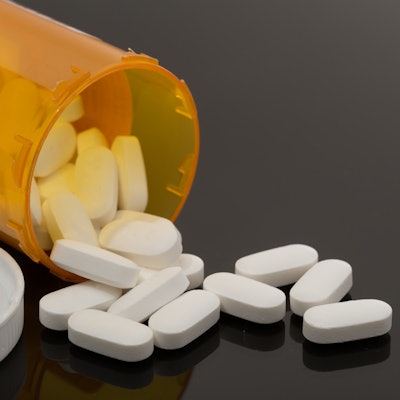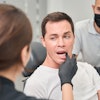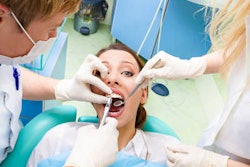
Diazepam, a medication that is commonly prescribed for patients with anxiety or insomnia, may aid in wound closure following a gingival graft, reports an article published on September 15 in the Journal of Dental Sciences.
Providers commonly use sedatives for patients who have dental anxiety in daily practice, but the direct influence of these substances on the healing of periodontal tissues has remained unknown. In this study, researchers analyzed the influence of the short-term administration of diazepam on patients with dental anxiety undergoing gingival graft procedures.
The study included 39 patients undergoing 51 gingival graft procedures. About half (26) of the patients were medicated with 5 mg of diazepam beginning the night before the procedure to seven days after surgery. To avoid drug addiction, tolerance, dependence, or withdrawal symptoms, diazepam was administered to patients for only eight days.
Direct examination, photographs, and hydrogen peroxide were used to evaluate healing after the grafting procedure. Stress levels, sleep quality, and salivary melatonin levels were also evaluated.
By day 14, complete epithelialization of the wounds was observed in almost half (48%) of the patients in the medication group but only in about one-third (35%) of patients in the control group. Complete epithelialization of donor palatal wounds typically takes two to four weeks.
To further evaluate the healing potential of diazepam, proportions of well-healing wounds were compared in the two patient groups. About 90% of patients medicated with diazepam were deemed to have well-healing wounds compared to about 71% of patients who did not receive medication.
"It is speculated that the sedative, diazepam, may trigger some physiological reactions to facilitate the healing of palatal wounds following FGG surgery," wrote the study authors, led by I-Ping Lin of National Taiwan University.
Further, the postoperative melatonin levels in the medicated patients were higher than those in the control group. Higher melatonin levels may accelerate wound healing, the authors noted.
"Because of its antioxidative and anti-inflammatory properties and capabilities to stimulate type I collagen formation, melatonin has been shown to facilitate wound healing," Lin and colleagues wrote.
Major complications of the free gingival graft (FGG) technique before the completion of epithelialization include pain, excessive hemorrhaging, bone exposure, and donor site morbidity. Many strategies have been attempted to accelerate the healing process of palatal wounds.
The study's authors postulate that short-term administration of diazepam facilitated healing by reducing stress levels and maintaining postoperative melatonin levels.
"It is likely that the sedative may be able to maintain postoperative melatonin levels, resulting in the acceleration of the healing of palatal donor wounds," the study authors concluded. "Therefore, sedatives can be considered for use in dental practice, especially for stressful surgical treatments."



















